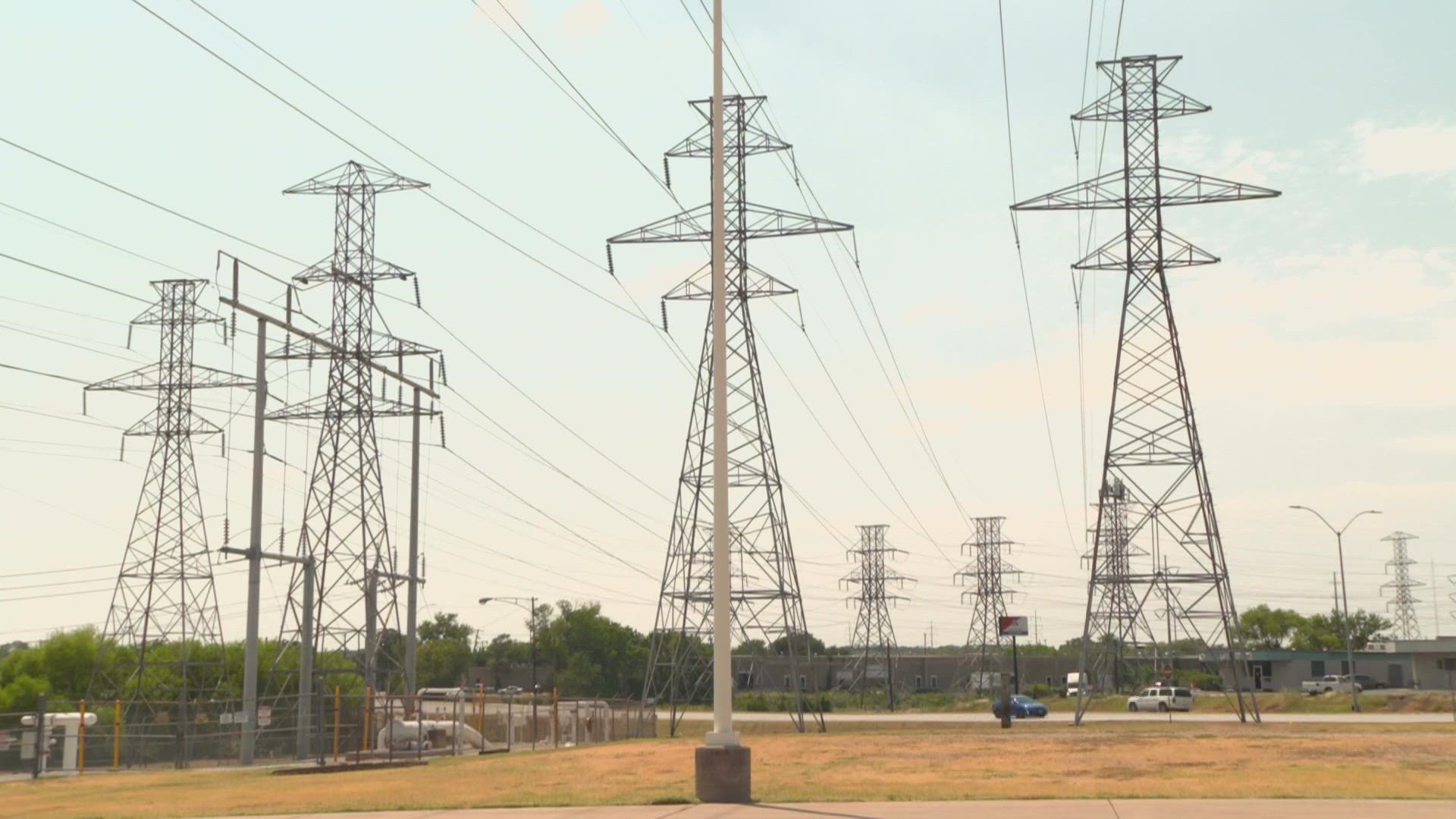DALLAS — It’s become a way of life for Texans.
During extreme heat or extreme cold, we regularly check Electric Reliability Council of Texas (ERCOT) grid conditions.
When energy consultant Alison Silverstein opened the ERCOT app Wednesday morning over coffee, she was surprised the grid operator had not issued a plea for conservation.
“It was pretty obvious pretty early in the day that it was going to be a tight day,” Silverstein said.
The conservation appeal came just after noon.
WFAA spoke with her around 4 p.m. and her prediction was right.
"It's very tight," she said.
“Think about Star Trek. When Kirk would say, we need to get out of here, give me more power. And Scotty would say, we got nothing left in the tank. Well, we’re there right now,” Silverstein explained.
More thermal plants – meaning those using coal and gas – were offline Wednesday than ERCOT had expected.
ERCOT also said there was little wind, and cloud cover moved into West Texas, causing solar production to dip.
Reserves fell and the price for energy on the wholesale market reached $5,000 per megawatt. That’s the cap.
“When prices that are usually in the very comfortably, in the $40 or $50 range – below $100 per megawatt hour -- gets up to $5,000 that tells you something’s in trouble,” Silverstein said.
ERCOT predicted in May the summer peak demand would reach 77,317 megawatts.
That number has been surpassed multiple times this week.
Rolling outages were not triggered on Wednesday, but the threat was real and additional conservation pleas are likely as intense summer heat drags on.
“The Texas population has grown insanely over the last decade,” Silverstein said. “That’s people who want to come here and consume electricity.”
She said Texas has also lagged in building energy-efficient homes and incentivizing conservation.
“This is a level of demand for electric demand and heat that nobody planned for,” she said.

